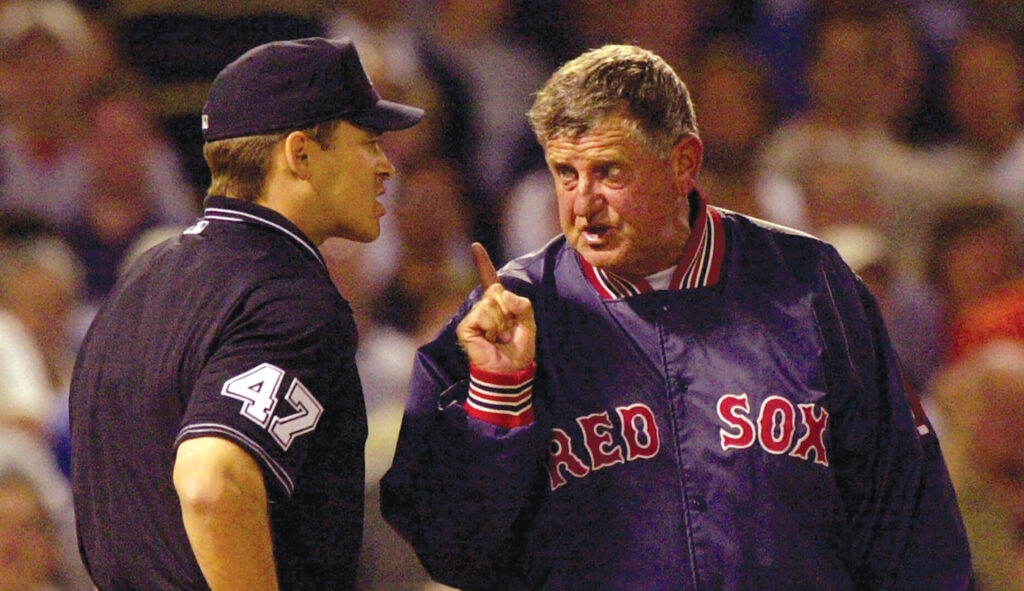In the field of leadership, there are two types of successful captains. There are those who bring their squads all the way up from the bottom rungs to the point where they’re at the precipice of achieving their dreams, but who are, for various reasons, unable to get them over that final hump. And there are those who take on those on-the-cusp teams from that point on and do manage to lead them to glory. The first group of leaders are Moseses. Even though they fail to drop their unit off at their final destination, the fact that they brought them so far — in addition to everything they teach them along the way — merits them a place in history. The second kind of leaders are Joshuas. It is obvious why they go down in history; after all, they are the ones who actually succeed in bringing their crew into the promised land. But without the Moseses that precede them, they would most likely never be able to help those teams surmount that one stubborn final hurdle.
In the world of baseball managers, Jimy Williams, who died this week in Tarpon Springs, Florida, at the age of 80, was a Moses, not a Joshua. (And yes, that’s not a typo; he really did spell his first name as “Jimy.” He first did it as a joke in high school and later decided to go with it as his name’s actual spelling.) A Santa Maria, California, native who enjoyed little more than the proverbial cup of coffee in the Majors before turning to coaching, Williams won over 900 games with the Red Sox, Astros, and Blue Jays.

After 25 years of managing, Williams was named American League Manager of the Year in 1999, the same year that also witnessed his greatest managerial feat. Williams had guided his upstart Red Sox to the playoffs that season only for them to draw the vaunted Cleveland Indians in the first round. With one transcendent starting pitcher in Pedro Martinez and not much else in terms of live arms, the ’99 Red Sox were the epitome of the “star-pitcher-and-pray-for-four-days-of-rain” pitching staff. Meanwhile, the late-‘90s Indians offense was the closest thing many had seen to the Murderers’ Row lineups of the 1920s Yankees, boasting fearsome sluggers such as Albert Belle, Jim Thome, Richie Sexson, and Manny Ramirez (who would later sign with the Red Sox), as well as future Hall of Famer Roberto Alomar, Hall of Fame-caliber outfielders Kenny Lofton and David Justice, and, in Omar Vizquel, arguably the second greatest fielding shortstop of all time.
CLICK HERE TO READ MORE FROM THE WASHINGTON EXAMINER
On paper, the plucky Red Sox didn’t stand a chance against an Indians team that had assembled one of the most daunting collections of talent that Major League Baseball had ever seen. Indeed, after the Indians took the first two games of that best-of-five Wild Card series in dominating fashion, we Red Sox fans were already consoling ourselves with lines such as “maybe next year” and “at least we made the playoffs” — frustrating platitudes that we had become far too accustomed to using during the prior 80-plus years. But Williams’s astute management of the limited Red Sox bullpen allowed the Sox to turn the series around. The Red Sox came all the way back from the 0-2 series deficit to stun the Indians, capping the comeback in a rousing Game 5 that featured a spectacular six-inning Pedro Martinez relief appearance and a Troy O’Leary grand slam (the first in Red Sox postseason history).
Today, most baseball fans, and even most Red Sox fans, remember Pedro’s heroics, and maybe some remember O’Leary and Nomar Garciaparra’s home runs. But they may not remember Williams’s role in inspiring the Red Sox to complete that comeback. After the team had gone down 0-2 in the series, Williams told his players and anyone who would listen, “you (i.e., the Indians) better sweep us,” instilling them with the belief that they were good enough to beat the Indians, even after having spotted them a 2-0 series lead. Slippin’ Jimy helped us Red Sox fans and his players believe that the impossible could be done: that they not only could beat the Indians, but that perhaps, one day, they could even win a World Series in our lifetime.
Daniel Ross Goodman is a Washington Examiner contributing writer and a postdoctoral fellow at Harvard Divinity School. His latest book, Soloveitchik’s Children: Irving Greenberg, David Hartman, Jonathan Sacks, and the Future of Jewish Theology in America, was published this summer by the University of Alabama Press.
